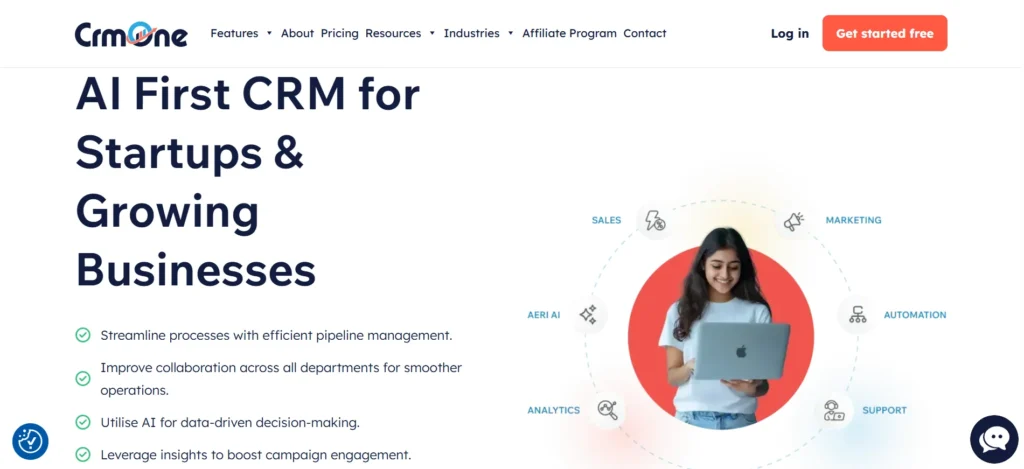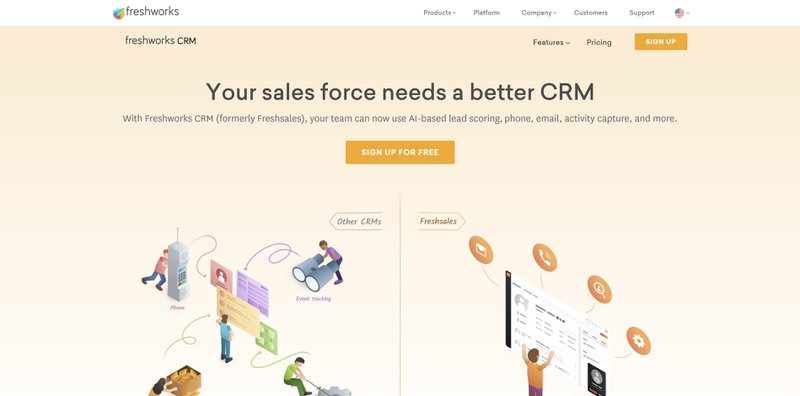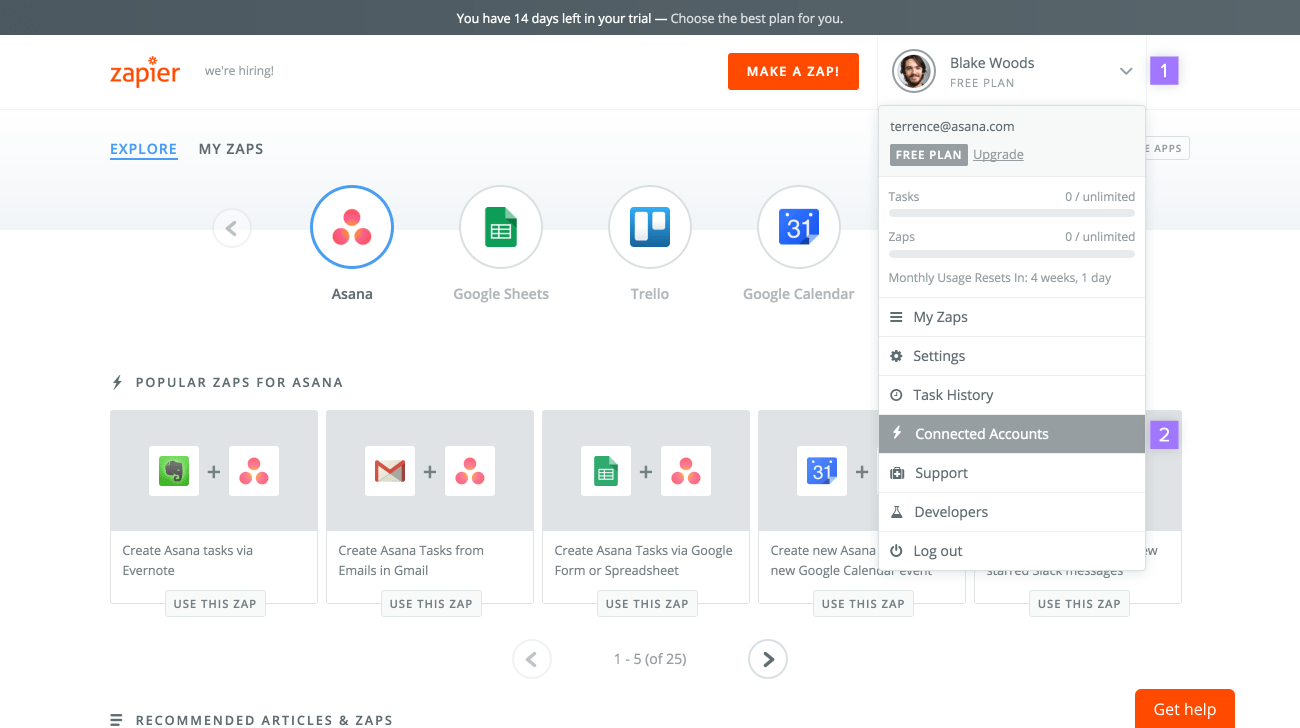Small Business CRM Innovations in 2025: Revolutionizing Customer Relationships and Boosting Growth

Small Business CRM Innovations in 2025: Revolutionizing Customer Relationships and Boosting Growth
The landscape of customer relationship management (CRM) is constantly evolving, and for small businesses, staying ahead of the curve is no longer a luxury—it’s a necessity. As we approach 2025, the innovations in CRM technology promise to reshape how small businesses interact with their customers, manage their data, and drive growth. This article delves into the key CRM innovations expected to impact small businesses, offering insights into how these advancements can be leveraged to gain a competitive edge.
The Current State of CRM for Small Businesses
Before we look ahead, it’s important to understand where small business CRM stands today. Many small businesses have already embraced CRM systems, recognizing their value in centralizing customer data, streamlining sales processes, and improving customer service. However, many are still using basic CRM solutions, often lacking the advanced features and integrations that could significantly enhance their operations.
The primary challenges faced by small businesses in adopting and utilizing CRM include:
- Cost: The initial investment in CRM software, along with ongoing subscription fees, can be a significant barrier for small businesses with limited budgets.
- Complexity: Some CRM systems are overly complex, requiring extensive training and customization, which can be time-consuming and resource-intensive.
- Integration: Connecting CRM with other business tools, such as marketing automation platforms and e-commerce systems, can be challenging.
- Data Management: Maintaining accurate and up-to-date customer data can be difficult, especially for businesses with limited staff and resources.
Despite these challenges, the benefits of CRM for small businesses are undeniable. These include improved customer satisfaction, increased sales, better data-driven decision-making, and enhanced team collaboration.
Key CRM Innovations Shaping Small Businesses in 2025
The next few years will witness a wave of CRM innovations poised to transform how small businesses operate. Here’s a look at some of the most significant trends:
1. AI-Powered CRM: The Rise of Intelligent Automation
Artificial intelligence (AI) is set to revolutionize CRM. AI-powered CRM systems will go beyond basic automation to offer predictive analytics, personalized customer experiences, and intelligent insights.
- Predictive Analytics: AI algorithms will analyze customer data to predict future behavior, such as purchase likelihood, churn risk, and customer lifetime value. This will enable small businesses to proactively engage with customers and tailor their marketing efforts.
- Personalized Customer Experiences: AI will personalize customer interactions across all channels, from website visits to email communications. This includes dynamic content, product recommendations, and automated responses that cater to individual customer preferences.
- Intelligent Automation: AI will automate repetitive tasks, such as data entry, lead scoring, and email follow-ups, freeing up sales and marketing teams to focus on more strategic activities.
- Chatbots and Virtual Assistants: AI-powered chatbots and virtual assistants will become more sophisticated, providing 24/7 customer support and handling a wider range of customer inquiries.
2. Enhanced Data Analytics and Reporting
Data is the lifeblood of any CRM system, and in 2025, small businesses will benefit from more advanced data analytics and reporting capabilities. This includes:
- Real-time Dashboards: CRM systems will provide real-time dashboards that offer a comprehensive view of key performance indicators (KPIs), such as sales figures, customer acquisition cost, and customer satisfaction scores.
- Advanced Reporting: Businesses will be able to generate custom reports that provide deeper insights into customer behavior, sales performance, and marketing effectiveness.
- Data Visualization: Data visualization tools will make it easier to understand complex data sets, enabling businesses to identify trends and patterns quickly.
- Predictive Analytics for Forecasting: CRM will use predictive analytics to forecast future sales, customer demand, and market trends, helping small businesses make informed decisions.
3. Hyper-Personalization and Customer Segmentation
In 2025, CRM will go beyond basic segmentation to offer hyper-personalization, tailoring interactions to each individual customer’s needs and preferences. This includes:
- Advanced Segmentation: CRM systems will use advanced segmentation techniques, such as behavioral segmentation and psychographic segmentation, to group customers based on their interests, values, and lifestyles.
- Personalized Content: Businesses will deliver personalized content across all channels, including email, website, and social media, based on customer segments and individual preferences.
- Dynamic Pricing: CRM systems will dynamically adjust pricing based on customer behavior, purchase history, and other factors.
- Customized Product Recommendations: Businesses will use CRM data to provide personalized product recommendations, increasing the likelihood of upselling and cross-selling.
4. Mobile CRM: Empowering the Remote Workforce
With the rise of remote work, mobile CRM solutions will become even more critical. In 2025, mobile CRM will offer:
- Enhanced Mobile Functionality: Mobile CRM apps will provide full functionality, allowing sales teams to access customer data, manage leads, and close deals from anywhere.
- Offline Access: Users will be able to access and update customer data even without an internet connection.
- Integration with Mobile Devices: CRM will integrate with mobile device features, such as voice assistants, GPS, and camera, to streamline workflows.
- Real-time Notifications: Mobile CRM will provide real-time notifications about important customer interactions, sales opportunities, and task assignments.
5. Integration and Interoperability
Seamless integration with other business tools will be a key priority for CRM in 2025. This includes:
- Enhanced API Capabilities: CRM systems will offer robust APIs that allow businesses to integrate with a wide range of third-party applications, such as marketing automation platforms, e-commerce systems, and social media tools.
- Pre-built Integrations: CRM vendors will offer pre-built integrations with popular business tools, making it easier for businesses to connect their systems.
- Data Synchronization: CRM will synchronize data across all integrated systems, ensuring that customer information is consistent and up-to-date.
- Open Platforms: CRM platforms will become more open, allowing businesses to customize and extend their functionality to meet their specific needs.
6. CRM and the Metaverse
While still in its early stages, the metaverse is poised to influence CRM in the coming years. Businesses are exploring how to use virtual environments to engage with customers, provide immersive experiences, and gather data. CRM in the metaverse may involve:
- Virtual Customer Service: Providing customer support through virtual avatars in immersive environments.
- Interactive Product Demos: Showcasing products and services through interactive virtual experiences.
- Data Collection in the Metaverse: Gathering customer data from interactions within virtual environments.
- Personalized Virtual Experiences: Tailoring virtual experiences based on customer preferences and behavior.
Choosing the Right CRM for Your Small Business in 2025
Selecting the right CRM system is crucial for small businesses. Here’s a guide to help you make the right choice:
- Define Your Needs: Clearly identify your business goals, customer relationship challenges, and the features you need in a CRM system.
- Research CRM Vendors: Explore different CRM vendors and compare their features, pricing, and customer reviews.
- Consider Scalability: Choose a CRM system that can grow with your business as your needs evolve.
- Prioritize Ease of Use: Select a CRM system that is user-friendly and easy to implement.
- Evaluate Integration Capabilities: Ensure that the CRM system integrates with your existing business tools.
- Look for AI-Powered Features: Prioritize CRM systems that offer AI-powered features to automate tasks and provide insights.
- Assess Data Security: Ensure that the CRM system has robust data security measures to protect customer information.
- Consider Mobile Capabilities: Ensure that the CRM system has a mobile app that offers full functionality.
- Request Demos and Trials: Request demos and free trials to test different CRM systems before making a decision.
- Check Customer Support: Evaluate the vendor’s customer support and training resources.
Implementation Tips for Small Businesses
Once you’ve selected a CRM system, successful implementation is key. Here are some tips:
- Plan Your Implementation: Create a detailed implementation plan that outlines the steps involved in setting up the CRM system.
- Clean Your Data: Ensure your existing customer data is accurate and up-to-date before importing it into the CRM system.
- Customize Your CRM: Customize the CRM system to meet your specific business needs and workflows.
- Train Your Team: Provide comprehensive training to your team on how to use the CRM system.
- Encourage Adoption: Encourage your team to use the CRM system by highlighting its benefits and providing ongoing support.
- Monitor and Optimize: Regularly monitor the performance of the CRM system and make adjustments as needed.
- Integrate with Existing Systems: Ensure seamless integration with your existing business tools.
- Set Clear KPIs: Define Key Performance Indicators (KPIs) to measure the success of your CRM implementation.
- Provide Ongoing Support: Offer continuous support and training to ensure your team can effectively use the CRM system.
- Regularly Update and Adapt: Stay informed about CRM updates and adapt your processes to take advantage of new features.
The Future of Small Business CRM: Trends Beyond 2025
Looking beyond 2025, the future of small business CRM holds even more exciting possibilities:
- Blockchain Integration: CRM systems may integrate with blockchain technology to enhance data security and transparency.
- Voice-Activated CRM: Voice-activated CRM systems will become more prevalent, allowing users to interact with the system using voice commands.
- Predictive Personalization: CRM systems will leverage predictive analytics to anticipate customer needs and personalize interactions in real-time.
- Advanced Automation: CRM will automate a wider range of tasks, freeing up sales and marketing teams to focus on more strategic activities.
- Human-AI Collaboration: The emphasis will be on collaboration between humans and AI, with AI providing insights and automation, and humans providing creativity and judgment.
Conclusion: Embracing Innovation for Small Business Success
The CRM innovations anticipated for 2025 and beyond offer small businesses unprecedented opportunities to enhance customer relationships, streamline operations, and drive growth. By embracing these technologies, small businesses can gain a competitive edge, improve customer satisfaction, and achieve sustainable success. The key is to stay informed, choose the right CRM system, and continuously adapt to the evolving landscape of customer relationship management.





